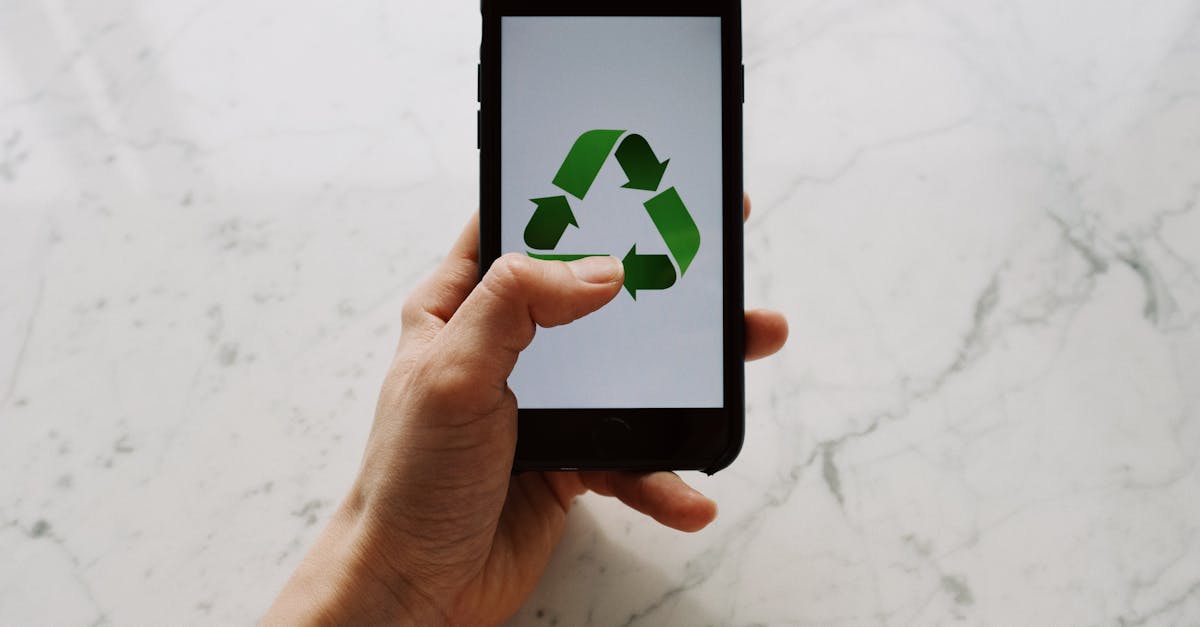
Table Of Contents
Recycling vs. Donating
When faced with the decision of what to do with old computers that are no longer in use, individuals often contemplate between recycling and donating. Electronics Recycling is a responsible way to dispose of old computers in an environmentally friendly manner. By recycling old computers, valuable materials like metals, plastics, and glass can be extracted and repurposed to reduce the need for new raw materials, thus minimizing the strain on the environment.
On the other hand, donating old computers can be a great option if the device is still functional and can benefit others in need. Organizations and individuals looking for affordable computing options may greatly appreciate receiving a donated computer. By donating, you not only extend the life of the computer but also support someone who may not have access to such technology otherwise.
Consider donating if the computer is still functional
Consider donating your old computer if it is still in working condition. Donating your computer is a great way to extend its lifespan and provide someone in need with a valuable resource. Many organizations, schools, and individuals are often looking for used computers that are functional and can still be used for various purposes. By donating your old computer, you are not only helping someone in need but also reducing electronic waste that would otherwise end up in landfills.
When deciding to donate your old computer, ensure that it is in good working order and can meet the basic requirements of the recipient. Some organizations may have specific guidelines for the condition of donated computers, so it's essential to check with them beforehand. Additionally, consider wiping the hard drive of any personal data before donating it to protect your privacy. By donating your old computer, you are contributing to the promotion of sustainability through Electronics Recycling, while also benefiting others who may not have access to such resources.
Checking Local Regulations
When disposing of old computers, it is crucial to check local regulations to ensure compliance with electronic waste disposal laws. Different regions have specific guidelines regarding the appropriate methods for discarding electronic devices. Some areas may have designated drop-off locations or scheduled pickup services for electronic waste, including old computers. Failure to follow these regulations could result in penalties or fines, so it is important to research and understand the proper procedures in your locality to dispose of electronic devices responsibly.
One common aspect of local regulations to consider is Electronics Recycling. Many areas have implemented programs or facilities that specialize in recycling electronic waste, such as old computers. These initiatives are aimed at reducing the environmental impact of electronic devices by safely extracting valuable materials and minimizing the amount of electronic waste sent to landfills. By utilizing Electronics Recycling services, individuals can contribute to sustainable waste management practices while ensuring that old computers are properly disposed of in accordance with local regulations.
Ensure compliance with electronic waste disposal laws
Ensure compliance with electronic waste disposal laws by researching and understanding the regulations in your local area. Many states and municipalities have specific guidelines for the disposal of electronic waste to prevent environmental harm. Be sure to consult with your city or county's waste management department to ensure you are following the proper procedures when disposing of old computers. Electronics Recycling is a growing concern due to the hazardous materials found in electronics, such as lead, mercury, and cadmium. Failure to comply with these laws can result in fines and harm to the environment, so it's crucial to dispose of old computers responsibly.
When it comes to Electronics Recycling, consider options such as designated drop-off sites, recycling centers, or electronic waste collection events in your community. Some organizations and retailers provide programs for proper disposal of electronic waste. By partnering with these initiatives, you can ensure that your old computers are recycled in an eco-friendly manner. Remember, even if your computer is no longer functional, it's essential to dispose of it correctly to prevent harmful chemicals from seeping into the environment.
Reusing Components
When disposing of old computers, another eco-friendly option to consider is reusing components. Instead of throwing away the entire unit, you can salvage usable parts for future projects or repairs. Many components within a computer, such as hard drives, RAM, and CPUs, can be repurposed in other devices or used to upgrade existing systems. By reusing these components, you not only reduce electronic waste but also save money by avoiding the purchase of brand new parts.
Electronics Recycling centers often accept old computer components for recycling, but you can also investigate local repair shops or tech enthusiasts who may be interested in reusing your old parts. Before donating or selling any components, be sure to wipe any personal data from the devices to protect your privacy. Reusing components not only extends the lifespan of these electronics but also contributes to a more sustainable approach to managing electronic waste.
Salvage usable parts for future projects or repairs
When it comes to salvaging usable parts from old computers for future projects or repairs, it is important to handle the components with care to ensure their optimal functionality. Prior to dismantling the computer, it is advisable to conduct research to identify the parts that hold potential value for reuse. Components such as hard drives, RAM modules, graphics cards, and power supplies are commonly salvaged for various DIY projects or to fix other electronic devices. This practice not only aids in reducing electronic waste but also allows individuals to give a new purpose to outdated hardware, extending its lifespan. Consider organizing the salvaged parts in labeled containers for easy access when needed in the future.
Electronics Recycling facilities often accept the components that are beyond repair or have no potential for future use. Properly recycling the unusable parts ensures that hazardous materials are disposed of responsibly and prevents environmental contamination. In addition, certain elements within electronic components, such as lead, mercury, and cadmium, can be harmful if released into the environment through improper disposal methods. By working closely with reputable Electronics Recycling centers, individuals can contribute to sustainable practices and minimize the impact of electronic waste on our planet.
FAQS
Can I recycle my old computer instead of donating it?
Yes, recycling your old computer is a responsible option to properly dispose of electronic waste.
How can I ensure that I am complying with local regulations when disposing of my old computer?
Check with your local authorities or recycling centers to understand the electronic waste disposal laws in your area.
Is it better to donate my old computer if it is still functional?
Yes, donating a functional old computer can benefit others in need and reduce electronic waste.
What should I do with the usable parts of my old computer?
You can salvage usable parts from your old computer for future projects or repairs, reducing electronic waste and saving money on replacement parts.
Why is it important to consider electronic waste disposal laws when getting rid of old computers?
It is important to comply with electronic waste disposal laws to protect the environment and prevent harmful substances from contaminating landfills.


